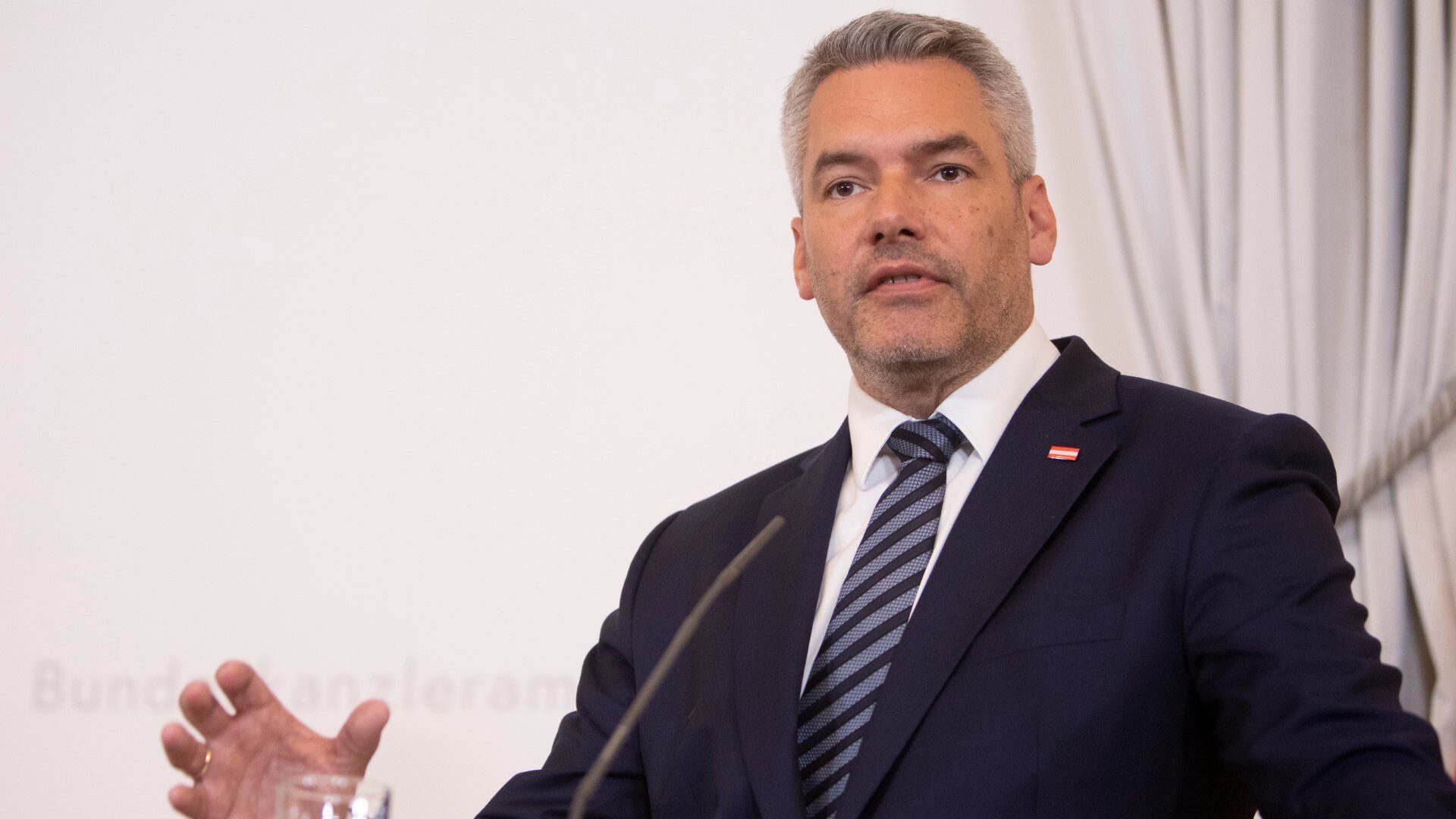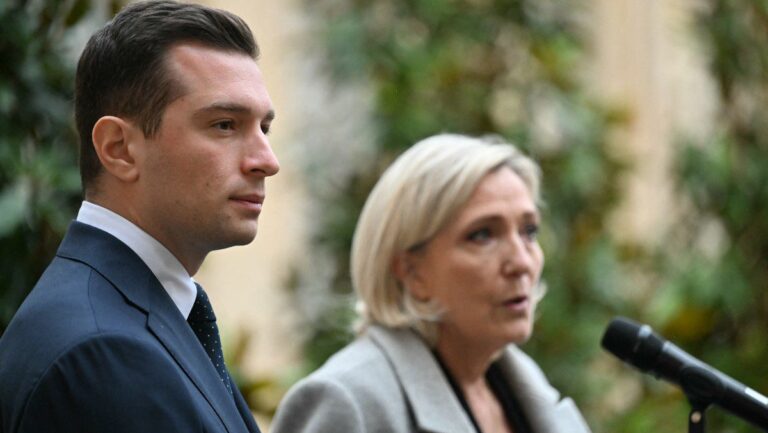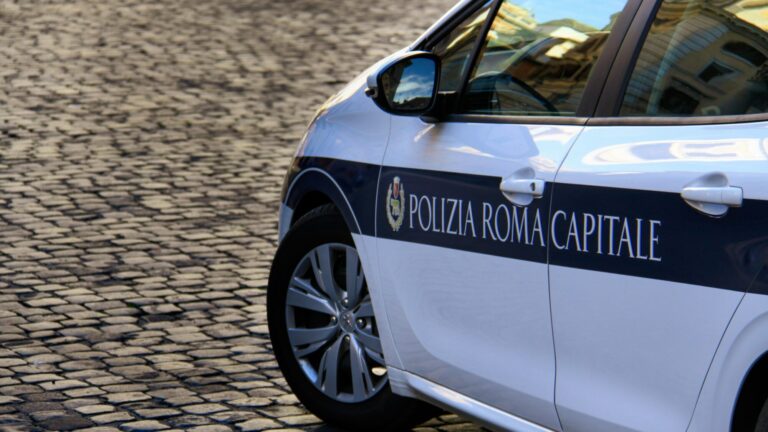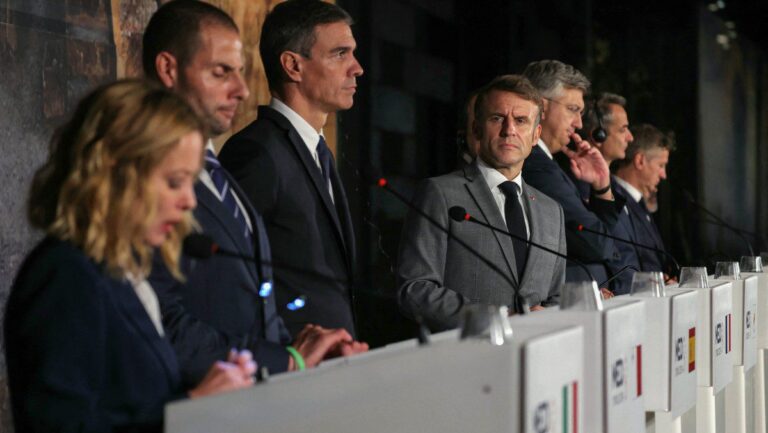In what might be a rarity among contemporary European leaders, Austria’s Chancellor is calling for the right to use cash to be enshrined in that nation’s constitution, a move Reuters in a headline chose to refer to as a “far-right idea.”
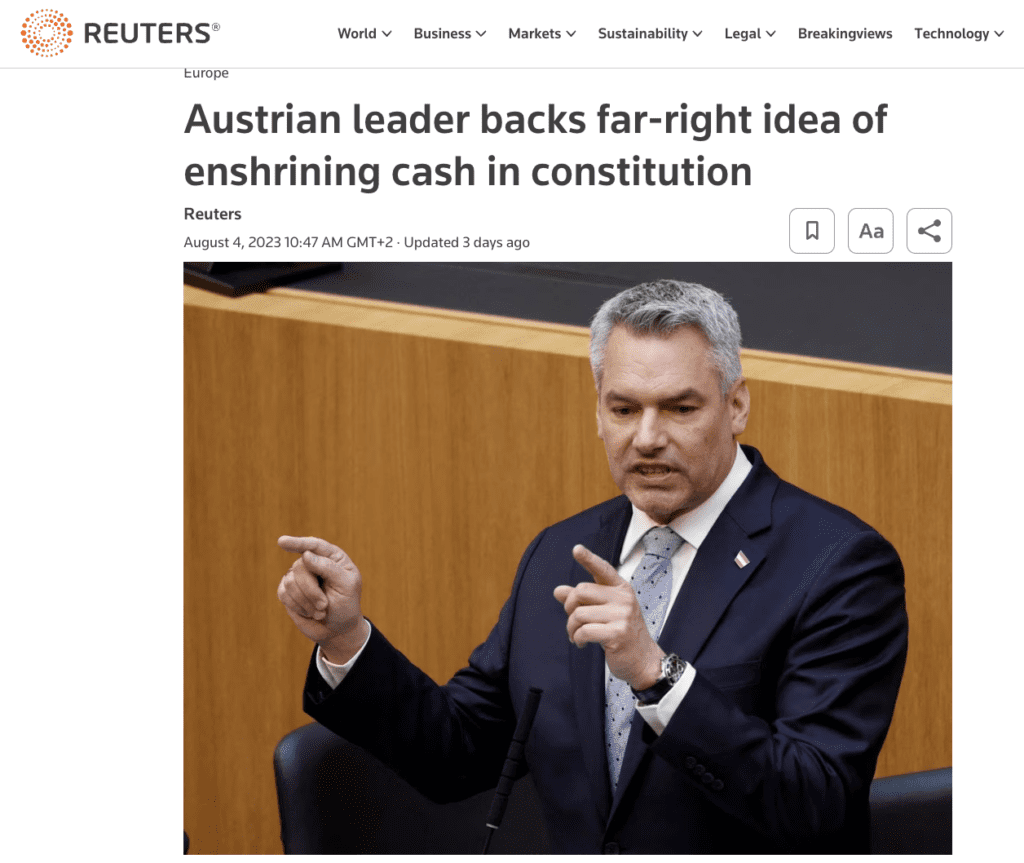
Austrian news outlet Exxpress commented the Reuters headline:
One rubs one’s eyes in amazement: the term “right-wing extremism” covers ultranationalist, fascist, neo-Nazi or neo-fascist ideologies. The fact that the demand for anchoring cash in the constitution is suddenly considered right-wing extremist is new. Cash has proven itself as a means of payment since the development of metal coins in ancient times. It is a millennia-old commodity, also for storing value.
On August 4th, Karl Nehammer said on social media platform X, formerly known as Twitter, that since cash “plays an important role” in Austrians’ daily lives, he was “committed to ensuring that cash as a means of payment is constitutionally protected.”
Das Taschengeld für das Kind. Die eiserne Reserve zu Hause. Das Geld im Börserl für alle Fälle. Allein in Österreich werden jedes Jahr 47 Milliarden Euro an Bankomaten behoben und im Schnitt trägt jeder Österreicher 102 Euro Bargeld bei sich. Bargeld spielt in unserem Alltag eine… pic.twitter.com/8zplGJANND
— Karl Nehammer (@karlnehammer) August 4, 2023
The issue of cash is a sensitive one to Austrian voters, which is evinced by Austria finding itself amongst those euro zone countries where the percentage of point-of-sale payments made in cash is highest. Leader of the pack is Malta (77%), closely followed by Slovenia (73%), Austria (70%), and Italy (69%).
Recently, the Austrian debate over guaranteeing the future of cash has intensified.
The right-wing populist Freedom Party (FPÖ) has long called for the right to use cash to be inscribed in the constitution, partly in reaction to EU plans to introduce a digital euro, which the party claims would be a first step towards banning or phasing out cash altogether.
In addition, the party takes issue with a proposal from the European Commission to impose a €10,000 limit on cash payments, which would serve to combat money laundering and terrorist financing.
Nehammer’s plan, and that of his conservative People’s Party (ÖVP), is being viewed as an attempt to seduce voters away from the FPÖ in the run-up to next year’s parliamentary elections, which, the latest polls say, the FPÖ has a good chance of dominating, having garnered 32% of the voter support.
The Freedom Party has therefore accused Nehammer of stealing its idea.
Dass der Wahltermin näher rückt, merkt man immer dann, wenn die ÖVP die Kopiermaschinen anwirft. Nur rund zwei Wochen, nachdem die FPÖ die Petition „Festung Bargeld“ gestartet und diese von zig-tausend Österreichern unterzeichnet wurde, will die ÖVP den … https://t.co/q96IdWy3DD pic.twitter.com/pp08FVNOBm
— FPÖ (@FPOE_TV) August 5, 2023
Nehammer denies having attempted to take the wind out of the FPÖ’s sails by the move. The FPÖ “beats the drum a lot, but does nothing concrete,” the Chancellor told Austrian media.
Enshrining cash in the constitution is wise because “more and more people are concerned that cash will be restricted as a means of payment in Austria. There is no question of that,” Nehammer stressed. This uncertainty, he continued, he wanted to combat, since “people have a right to cash.”
A roundtable will be held in September between representatives of the ministries, industry, and the central bank to implement the idea “in the best possible, reasonable and legal manner,” Nehammer continued.
The Social Democratic Party’s (SPÖ) wish to mandate an ATM in every municipality, Nehammer however finds it impractical. There should be a “basic facility” within a “reasonable distance,” he merely said.
SPÖ member Philip Kucher said Nehammers’s call for a right to cash was worthless if “there will not be a single ATM left in Austria.”
Austria is not the first country to mount a defense against the European Commission’s attempts to limit the use of cash. Promoting cash payments was part of Italian PM Giorgia Meloni’s first budget, a priority she had to partially renege on after pushback from Brussels.

